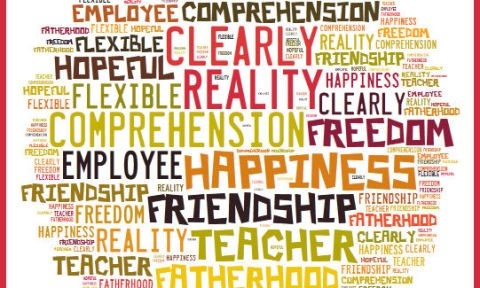This Crazy Language

If you want to keep learning new vocabulary and improving your ability to express yourself in a foreign language—whether orally or in writing read as much as you can in their original version.
Here are some tips you can follow:
- Use “graded readers”, books indicating their required reading level.
- Choose books carefully. Don’t forget that reading should be enjoyable, despite the effort it takes. Select books that interest you and stories that intrigue you!
- Don’t translate every word you don’t know, use context to help you understand the meanings of the sentences.
- Identify key phrases. If you don’t understand them, look up the most important words in the dictionary and write down their meanings. MosaLingua applications will soon offer users the option to add their own flash cards …
- Start with short stories and texts so that you can become confident in your skills and won’t feel tired.
Now, give it a try and read this interesting text about the English language.
English is the most widely used language in the history of our planet. One in every 7 humans can speak it. More than half of the world’s books and 3 quarters of international mail is in English. Of all the languages, it has the largest vocabulary-perhaps as many as 2 million words. Nonetheless, let’s face it-English is a crazy language. There is no egg in eggplant nor ham in hamburger; neither apple nor pine in pineapple. English muffins weren’t invented in England or French fries in France. Sweetmeats are candies while sweetbreads, which aren’t sweet, are meat.
We take English for granted. But if we explore its paradoxes, we find that quicksand can work slowly, boxing rings are square and a guinea pig is neither from Guinea nor is it a pig. And why is it that writers write but fingers don’t fing, grocers don’t groce and hammers don’t ham? If the plural of tooth is teeth, why isn’t the plural of booth beeth? One goose, 2 geese. So one moose, 2 meese? One index, 2 indices? One mouse, 2 mice; one spouse, why not two spice?
Doesn’t it seem crazy that you can make amends but not one amend, that you comb through annals of history but not a single annal? If you have a bunch of odds and ends and get rid of all but one of them, what do you call it?
If teachers taught, why didn’t preachers praught? If a vegetarian eats vegetables, what does a humanitarian eat? If you wrote a letter, perhaps you bote your tongue?
Sometimes I think all the English speakers should be commited to an asylum for the verbally insane. In what other language do people recite at a play and play at a recital? Ship by truck and send cargo by ship? Have noses that run and feet that smell?
How can a slim chance and a fat chance be the same, while a wise man and a wise guy are opposites? How can overlook and oversee be opposites, while quite a lot and quite a few are alike? How can a weather be hot as hell one day and cold as hell another?
Have you noticed that we talk about certain things only when they are absent? Have you ever seen a horseful carriage or a strapful gown? Met a sung hero or experienced requited love? Have you ever run into someone who has combobulated, gruntled, ruly or peccable?And where are those people who are spring chickens or who would actually hurt a fly?
You have to marvel at the unique lunacy of a language in which your house can burn up as it burns down, in which you fill in a form by filling it out, and in which an alarm clock goes off by going on, and you park in a driveway and drive on a parkway.
English was invented by people, not computers, and it reflects the creativity of the human race ( which, of course, isn’t a race at all). That is why, when the stars are out, they are visible, but when the lights are out, they are invisible. And why, when I wind up my watch, I start it, but when I wind up this essay, I end it.
Unknown Author
